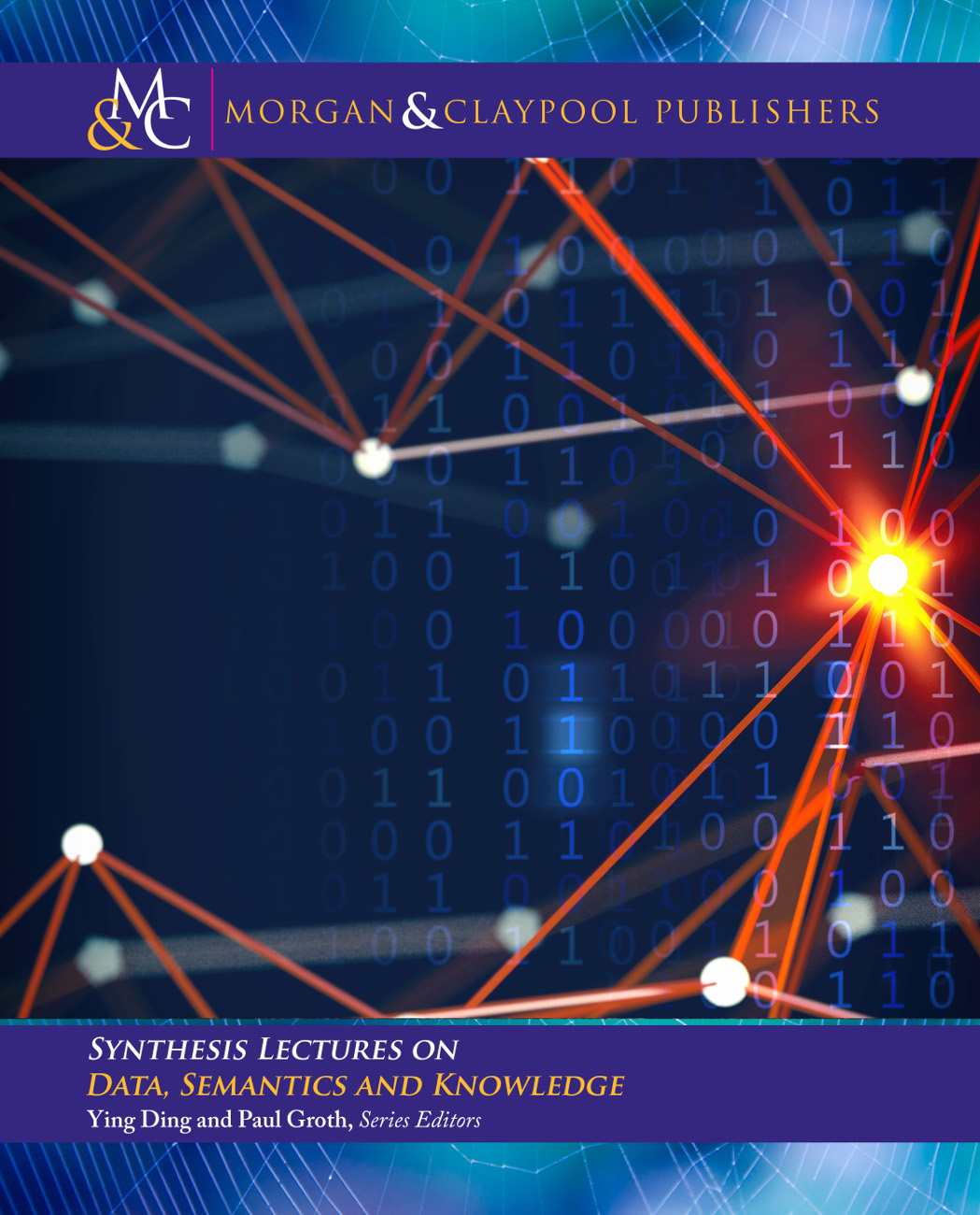About the book
The book is published by Springer in the series Synthesis Lectures on Data, Semantics, and Knowledge edited by Ying Ding and Paul Groth. The book and series was previously published by Morgan & Claypool. Please cite the book as:
Aidan Hogan, Eva Blomqvist, Michael Cochez, Claudia d’Amato, Gerard de Melo, Claudio Gutierrez, Sabrina Kirrane, José Emilio Labra Gayo, Roberto Navigli, Sebastian Neumaier, Axel-Cyrille Ngonga Ngomo, Axel Polleres, Sabbir M. Rashid, Anisa Rula, Lukas Schmelzeisen, Juan Sequeda, Steffen Staab, Antoine Zimmermann (2021) Knowledge Graphs, Synthesis Lectures on Data, Semantics, and Knowledge, No. 22, 1–237, DOI: 10.2200/S01125ED1V01Y202109DSK022, Springer.
BibTeX entry of this book:
@book{kg-book,
author = {Hogan, Aidan and Blomqvist, Eva and Cochez, Michael and
d'Amato, Claudia and de Melo, Gerard and Guti\'errez, Claudio and
Kirrane, Sabrina and Labra Gayo, Jos\'e Emilio and Navigli, Roberto and
Neumaier, Sebastian and Ngonga Ngomo, Axel-Cyrille and Polleres, Axel and
Rashid, Sabbir M. and Rula, Anisa and Schmelzeisen, Lukas and
Sequeda, Juan F. and Staab, Steffen and Zimmermann, Antoine},
doi = {10.2200/S01125ED1V01Y202109DSK022},
isbn = {9783031007903},
language = {English},
number = {22},
numpages = {237},
publisher = {Springer},
series = {Synthesis Lectures on Data, Semantics, and Knowledge},
title = {{K}nowledge {G}raphs},
url = {https://kgbook.org/},
year = {2021}
}
- ISBN paperback:
- 9783031007903
- ISBN ebook:
- 9783031019180
Copyright © 2021 by Springer. All rights reserved.
Access options
- HTML version:
- You are currently reading the free HTML version of the book, the most recent of which is available at https://kgbook.org/.*
- PDF Version:
- You can download or buy the book from Springer (the book was previously published by Morgan & Claypool). Academic and Corporate licences are available.
- Hard copy:
- You can order from Springer or Amazon.
